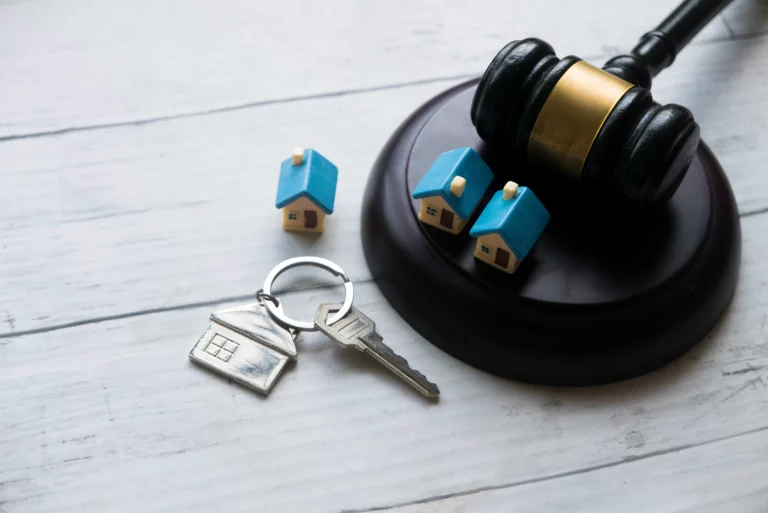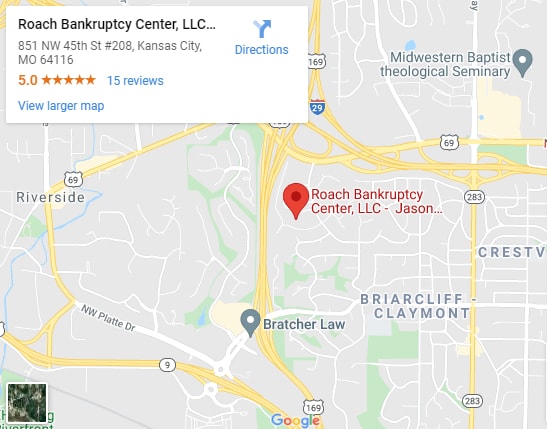Protecting Your Assets: Understanding Nonexempt Property in Bankruptcy
Are you dealing with insurmountable debts? If you are facing financial difficulties, you might want to consider filing for bankruptcy. However, it is worth noting that utilizing this legal solution is not a simple process, as it sometimes involves complex terms. One such term is the nonexempt property in bankruptcy. In this article, with the help of an experienced bankruptcy attorney, you will learn how imperative this concept is in every bankruptcy filing.
Roach Bankruptcy Center, LLC has been practicing bankruptcy law for over 15 years. We offer affordable, effective, and efficient legal services, drawing on our extensive knowledge of bankruptcy law. Our dedicated legal team is always ready to assist debtors like you who may be confused about how bankruptcy works. If you need our assistance, get a free initial consultation today!
What is Nonexempt Property?
Nonexempt property is property that cannot be protected from creditors during bankruptcy proceedings. In other words, it is property that can be sold by the bankruptcy trustee to pay off creditors. Debtors can claim certain exemptions to protect certain types of property, but nonexempt property is not protected by any exemptions.
The treatment of nonexempt property varies depending on the type of bankruptcy filed. Chapter 7 bankruptcy often involves the sale of nonexempt assets to repay creditors, while Chapter 13 bankruptcy may allow you to keep your nonexempt property by incorporating it into a repayment plan.
Why is it important to understand nonexempt property in bankruptcy?
It is important to understand nonexempt property in bankruptcy because it can affect your ability to keep your possessions and assets after filing for bankruptcy. Nonexempt property is property that is not protected by bankruptcy exemptions and can be sold by the bankruptcy trustee to pay off your creditors.
If you do not understand what nonexempt property is, you may be surprised and disappointed to learn that some of your possessions can be taken away from you during bankruptcy. You may also be unable to claim bankruptcy exemptions that you are eligible for, which could result in you losing more property than necessary.
By understanding nonexempt property, you can make informed decisions about your bankruptcy case and take steps to protect your most important possessions. For example, you may be able to claim bankruptcy exemptions, transfer nonexempt property to a spouse or child, or negotiate with your creditors to keep certain items.
Nonexempt Property in Chapter 7 vs. Chapter 13 Bankruptcy in Kansas City, Missouri
The main difference between Chapter 7 and Chapter 13 bankruptcy is that Chapter 7 is a liquidation bankruptcy, while Chapter 13 is a reorganization bankruptcy. In Chapter 7 bankruptcy, nonexempt property is typically sold by the bankruptcy trustee to pay off creditors. In Chapter 13 bankruptcy, debtors typically keep their nonexempt property, but they must repay the value of their nonexempt property to creditors over the course of their repayment plan.
How to Protect Your Nonexempt Property in Bankruptcy?
There are a few ways to protect your nonexempt property in bankruptcy:
Chapter 7 bankruptcy
- Claim all of your exemptions. When you file for Chapter 7 bankruptcy, you will need to list all of your property and claim any exemptions that apply. Be sure to carefully review the Missouri exemption laws to make sure that you are claiming all of the exemptions that you are entitled to.
- Transfer the property to a spouse or other exempt person. You may be able to transfer nonexempt property to your spouse or other exempt person before you file for bankruptcy. However, it is important to note that this type of transfer is subject to special rules, and you should consult with an attorney to make sure that it is done properly.
- Sell the property before you file for bankruptcy. If you sell nonexempt property before you file for bankruptcy, you can use the proceeds to pay down your debt or to purchase exempt property. However, it is important to note that this type of sale is also subject to special rules, and you should consult with an attorney to make sure that it is done properly.
Chapter 13 bankruptcy
- Pay the value of your nonexempt property to your creditors over time. In Chapter 13 bankruptcy, you can keep your nonexempt property by agreeing to pay the value of that property to your creditors over a period of time, typically three to five years.
- Sell the property and use the proceeds to pay your creditors. If you sell nonexempt property in Chapter 13 bankruptcy, you must use the proceeds to pay your creditors. However, you may be able to keep some or all of the proceeds if you can show that the property was not necessary to your support or that you have already paid enough to your creditors.
How Missouri Bankruptcy Exemptions Work
Missouri bankruptcy exemptions protect certain types of property from creditors during bankruptcy proceedings. This means that debtors can keep these assets even after filing for bankruptcy. Missouri bankruptcy exemptions can be used in both Chapter 7 and Chapter 13 bankruptcy cases.
Common Missouri Bankruptcy Exemptions
Some of the most common Missouri bankruptcy exemptions include:
- Homestead exemption: This exemption protects up to $15,000 of equity in the debtor’s primary residence.
- Car exemption: This exemption protects one vehicle used for transportation to and from work, up to a value of $3,000.
- Personal property exemption: This exemption protects a certain amount of personal property, such as clothing, furniture, and household appliances, up to a value of $600.
- Tools of the trade exemption: This exemption protects the debtor’s tools and equipment needed to conduct their trade or business, up to a value of $3,000.
How to Claim Missouri Bankruptcy Exemptions?
To claim Missouri bankruptcy exemptions, debtors must list the property that they want to protect on their bankruptcy schedules. They must also provide documentation to support their claim, such as a deed for their home or a title for their car.
Call Our Kansas City Bankruptcy Attorney Today!
Nonexempt property in bankruptcy is one of the most confusing terminologies for most people. However, just because it is confusing doesn’t mean that you will no longer have to do something about it. By understanding the intricacies of nonexempt property in bankruptcy in Kansas City MO, you can empower yourself to make informed decisions that protect your financial interests.
Don’t hesitate to seek legal counsel and explore your options to navigate this process effectively and secure a more stable financial future. Get in touch with an experienced bankruptcy attorney like Roach Bankruptcy Center, LLC. We offer personalized representation and guidance throughout your case.
Remember, you deserve one of the best bankruptcy attorneys in Kansas City, Missouri. Get a free initial consultation now!



